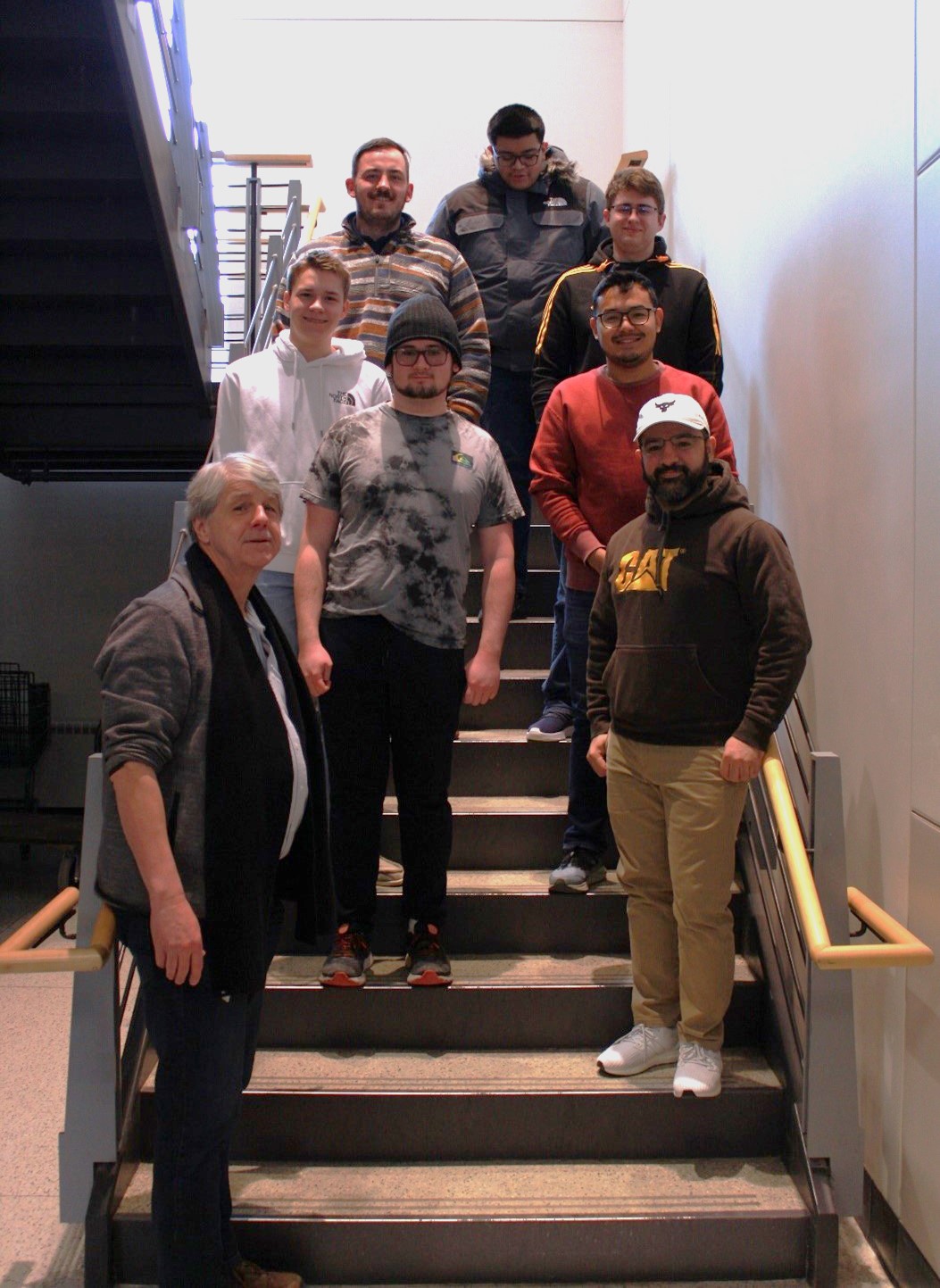
A team of students from M State competed in the 2023 Minnesota State Collegiate Cyber Defense Competition on February 4, battling controlled cybersecurity ‘threats’ to rack up points and vie for top ranking. They were one of eight teams from across the state to compete.
The event is held annually by the Minnesota State IT Center of Excellence and was hosted this year by Alexandria Technical and Community College. Nearly 80 students participated, alongside faculty members and industry experts who served as advisors, sponsors, and computer hacking experts.
M State student participants included Ryan Cadieux, Ian Johnson, Tye Majors, Bawi Mody, Rafael Murillo and Reid Starzl, of the college’s Information Technology, Computer Programming, and Cybersecurity programs, offered on the Moorhead campus and online. They were joined by Srijan Maskey, a Minnesota State University Moorhead student, and M State Faculty Advisor Tim Preuss.
The IT Center of Excellence is one of eight Minnesota State Centers of Excellence. The Centers provide high school and college students with resources and programs to support the changing world of information technology and computer science.
Collegiate Cyber Defense Competition teams work within a controlled virtual environment, assuming administrative and protective duties for an existing “commercial” network of 50 or so users, 7-10 servers, and standard internet services such as a web server, mail server, and e-commerce site. Teams are scored on their ability to detect and respond to outside threats, maintain the availability of services, respond to business requests such as the addition or removal of services, and balance security needs against business needs.
Throughout the competition, an automated scoring engine periodically verifies the functionality and availability of each team’s services, and simulated user traffic is fed into the competition network. A volunteer hacking expert provides the “external threat” of all internet-based services, which allows the teams to match their defensive skills against live opponents.
Of the eight teams that competed this year, Minneapolis College finished in the top spot and will go on to the regional competition in Illinois in mid-March. The winner of the regional event will get the chance to compete at the national level in Texas in April. Other participating teams in the state competition were: Hennepin Technical College, Pine Technical and Community College, Lake Superior College, Alexandria Technical and Community College, Metropolitan State University, Minnesota State University Moorhead and St. Cloud State University.